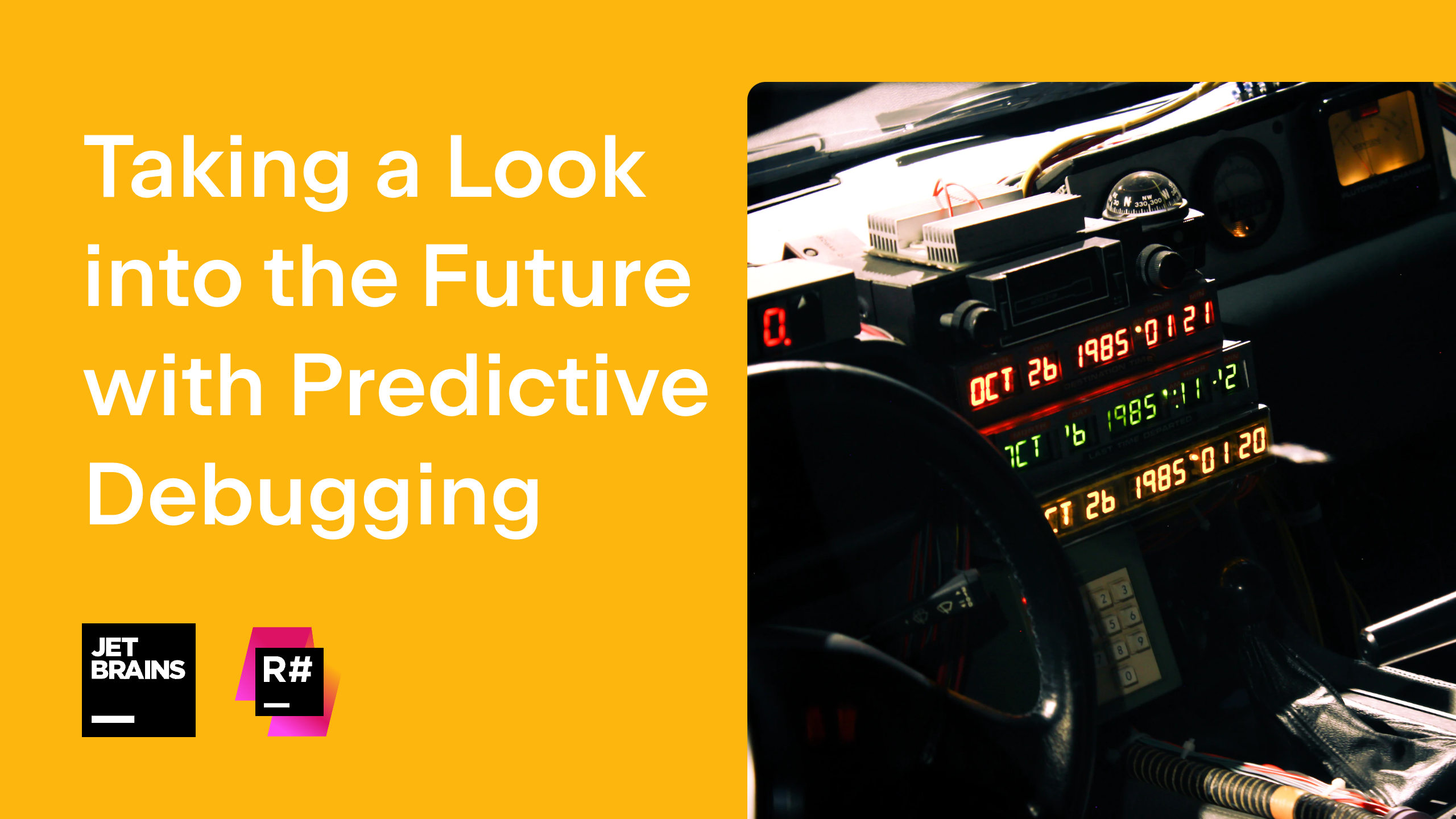deleted by creator
The code is already compiled. what do you mean it’s preemptively compiled? If you’re talking about executed, they explicitly called that out…
A prediction can also end at a function call the debugger is cautious about evaluating. That is for your own (or your software’s) well-being. Since code is executed during debugging, the debugger has to be sure that it’s not causing any mutations. When running the above example, we must confirm the evaluation of the int.TryParse method (more about that later):
As mentioned in the previous section, the predictive debugger won’t evaluate possibly impure functions to avoid side effects. As a human developer, you most certainly have more knowledge about the code, which is why we give you the possibility to forcefully evaluate a call by clicking the hint:
deleted by creator
By necessity, when you’re in the debugger your code has already been compiled either way, no? Or am I missing something here?
This isn’t executing your code as you’re writing it (though it does support Edit & Continue), this is preemptively executing the next lines in your code when you’re already paused in the debugger - which means it’s been compiled and already running.
you’re misunderstanding. this is a function of the debugger. Your code has already been compiled and is currently running if you are using this feature.
deleted by creator
preemptively running source as it was written
It’s not preemptively running source as it’s being written, it’s preemptively evaluating methods as you’re debugging it
This looks like it’s preemptive compiling, which isn’t just unwise, it’s potentially dangerous.
So I think what you might mean is preemptively evaluating methods at runtime? - which would be unwise / potentially dangerous - since it could cause side effect
For example, evaluating a method that increments something and modifies the state. So if it’s preemptively called by the debugger, the state would be modified, and the actual invocation would be different
I installed the Resharper RC, and this is how it looks like in a small project that parses an excel file: https://i.imgur.com/g4s0P3h.png
So, in the example my debugger is still on the
allTheFieldsEmptyline and hasn’t ran it yet, but resharper already evaluated it to false. Then it also greyed out everything in theif(allTheFieldsEmpty)block, since it knows it wouldn’t hit thatThe next line you can see there was a warning, “Possible impure evaluation” - which is that I assume you were talking about, and it didn’t evaluate that yet. I can click the box and make it evaluation it.
The debugger inspects the method, as the article mentions, it check for the PureAttribute - indicating that it’s safe to use
After I marked that
GetMappingFieldmethod as Pure, it actually did evaluate it without any interaction, and it predicted it would throw an exception https://i.imgur.com/zQ0K3Ge.png - seems pretty useful so fardeleted by creator
I don’t think this will necessarily help solve issues you wouldn’t be able to solve without this, though I used similar tools in the past (Ozcode) and it did make debugging easier / faster
I am unsure just how revolutionary this feature is, though I am definitely interested in trying it and can see it’s value. I’ve somewhat gotten away from Jetbrains, but I do still use and promote Rider for C# development so this is potentially a nice addition for my professional life.
am unsure just how revolutionary this feature is
It’s not. This feature existed for dotnet in bugaid (which then got renamed to Ozcode) (which then got killed by Datadog) for the last 10 years already
deleted by creator
Why do you say that?
A debugged code could be doing once per run operation, use unique data or send network request that’s isn’t supposed to be done until a user explicitly does it.
they explicitly call out that they won’t perform the predictive calls unless they’re sure it doesn’t modify state.
A prediction can also end at a function call the debugger is cautious about evaluating. That is for your own (or your software’s) well-being. Since code is executed during debugging, the debugger has to be sure that it’s not causing any mutations. When running the above example, we must confirm the evaluation of the int.TryParse method (more about that later):
As mentioned in the previous section, the predictive debugger won’t evaluate possibly impure functions to avoid side effects. As a human developer, you most certainly have more knowledge about the code, which is why we give you the possibility to forcefully evaluate a call by clicking the hint:
They do say that, but how much can it be trusted? Can they really detect all native interface calls? Be aware of all future file system checks or event driven programming paradigms?
hashset.getOrElse()where uniqueness decides future flow? I’m sure we will be experiencing or at least seeing bug reports related to predictive debugger triggering mutations.I’m struggling to see how bug reports found using this prediction approach would ever be sent as anything but bugs of the predictive debugger itself.
how would end-users ever see bugs caused by a debugger the devs use? how would users of a third-party library conflate bugs in their own code/the third-party code when you can see which lines are which as you debug?





